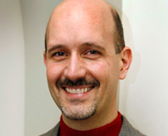(Un)Learning Evangelicalism

I did not grow up thinking that my religious identity fit into a category called evangelical. I remember my United Methodist youth group leader using the term once to describe herself, but it was not anything that came up in the context of my many declarations of allegiance to Jesus I made at camp each year. It wasn’t a common adjective at the various retreats, lock-ins, or occasional Amy Grant concert.
In college, I joined the Intervarsity Christian Fellowship. I again thought of my identity as just Christian, and not part of any particular Christian sub-group. The only time I heard the term evangelical was from an outside source – a professor of religious studies – who described us as the “evangelical Christian students” on campus. I wasn’t sure what kind of Christian students he was differentiating us from, because at my university, we were the only student group with “Christian” in its name.
After college, I moved to Los Angeles to teach 5th grade with Teach for America. As I considered my next steps, and began to look toward academia, I decided to begin my studies at Fuller Seminary, pursuing an MA in Cross-Cultural Studies. I worked in a Korean Methodist church for a time, attended a Filipino Conservative Baptist congregation, and briefly served with a multicultural church plant. I called myself “post-denominational,” and still had little affinity with the term evangelical.
Of course, what any astute reader can see is that I was diving deep into the evangelical world, formed by the quintessentially evangelical contexts of Intervarsity, Fuller Seminar, youth group lock-ins, Christian camps, and 1980s Amy Grant concerts. It didn’t matter what I called myself, by the time I interviewed for my job at Wheaton College in 2001, my Christian imagination – my sense of a Christian social being - was thoroughly formed in evangelicalism.
But to say I was “evangelical” through these experiences and institutions is to speak of a kind of socialization – a discourse – that I had learned to articulate. In the volume that informed our discussion over our three day workshop, Still Evangelical?: Insiders Reconsider Political, Social , and Theological Meaning (Labberton 2018), we encountered many “insiders” who struggle with the socialization that I easily took up in my own life. In particular, many of the people of color writing in the book (Yeh, Rah, Van Opstal, Romero) shared that, while they identified closely with the theological commitments of historic evangelicalism, they had experienced exclusion, lament, and pain from the same social community that had provided such a formative home for me.
What this brought out once again was the ways evangelicalism in the United States has taken on strong, often particularist, cultural form. I recall a candidate for a job at Wheaton College, an alumna who had been away for graduate school and her early career, noting this as she navigated the many interview stages. At one point, as I prepared her for a conversation with some colleagues in which her theology would be examined, she noted wryly, “I’ll be all right. I speak fluent evangelical.” This was not about being duplicitous. She certainly shared all the theological positions of Wheaton’s broadly evangelical statement of faith. But she also knew, as a keen-eyed anthropologist, that cultural dimensions our faith often served as proxies of theological commitments. Reassuring others of one’s theological commitments could be most easily accomplished by “speaking fluent evangelical.”
Though I personally hope to see the communal identity of “evangelical” continue, for me and for important institutions such as Wheaton, Fuller, and Intervarsity, it is these social proxies of theological identity should trouble us. There is nothing wrong with the social norms, musical aesthetics, religious forms, or modes of sociality that are widespread in evangelical contexts, but, it should go without saying, there is nothing more theologically right about them either. Evangelicals globally, and people from minority communities within the United States, will continue to feel a tension in identifying with White, English-speaking, U.S. evangelicals if we continue overlay theological belongs with cultural conformity. When these linguistic and social conventions become signals of theological position (or theological correctness), we conflate the substance of evangelicalism for the ephemera.
Evangelicalism needs a renewal, but not necessarily in devotion, piety, or theology. Rather, we need a renewal in our social imagination. We need to recognize the multiple modes, tongues, and styles our theology can take. We need, as Willie Jennings has argued, to recognize that all Christians, save those from the ancient nation of Israel, are grafted in, adopted members of the Body of Christ. No one should feel like an outsider to a movement that has brought all of us from the uttermost corners of the earth to put us under Christ as the head. If we can hold our own social norms loosely, relativizing them to time and context, and drawing together a wide diversity of such norms, we will be better positioned to hold more tightly to that which is unchanging and universal, the Eternal Word of Christ.
Contact Us
Center for Applied Christian Ethics
117 Blanchard Hall
501 College Ave
Wheaton, IL 60187
